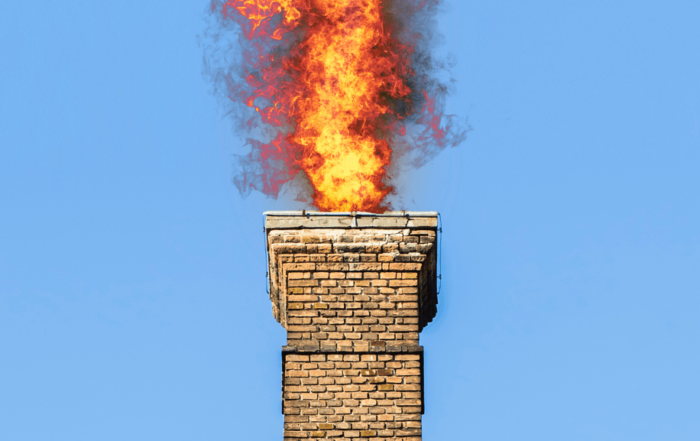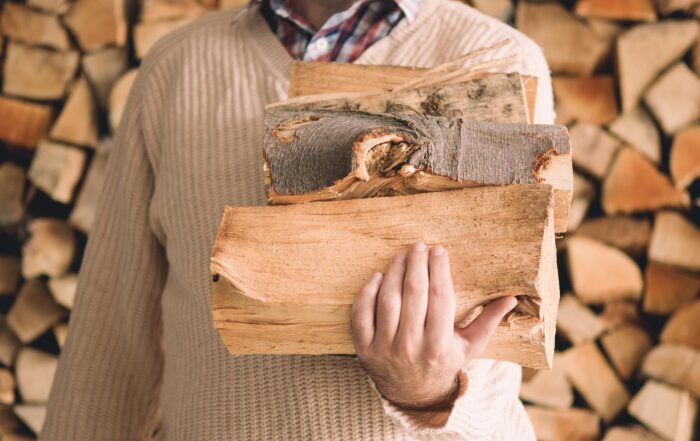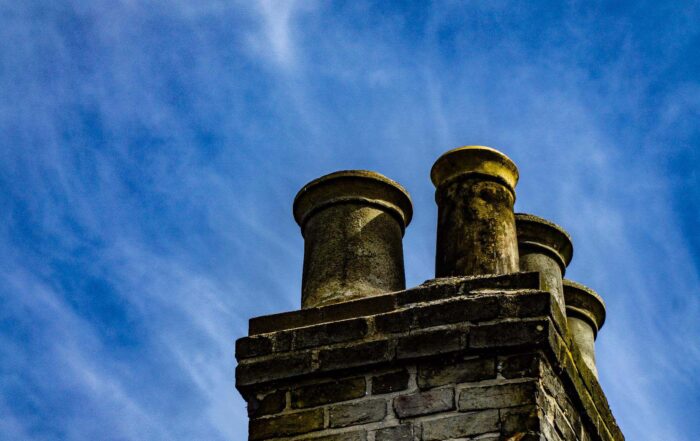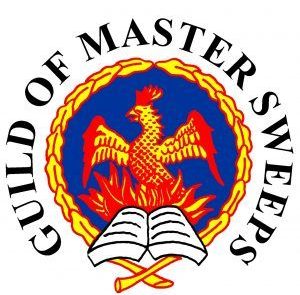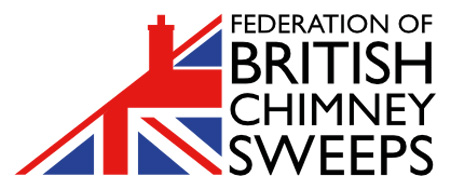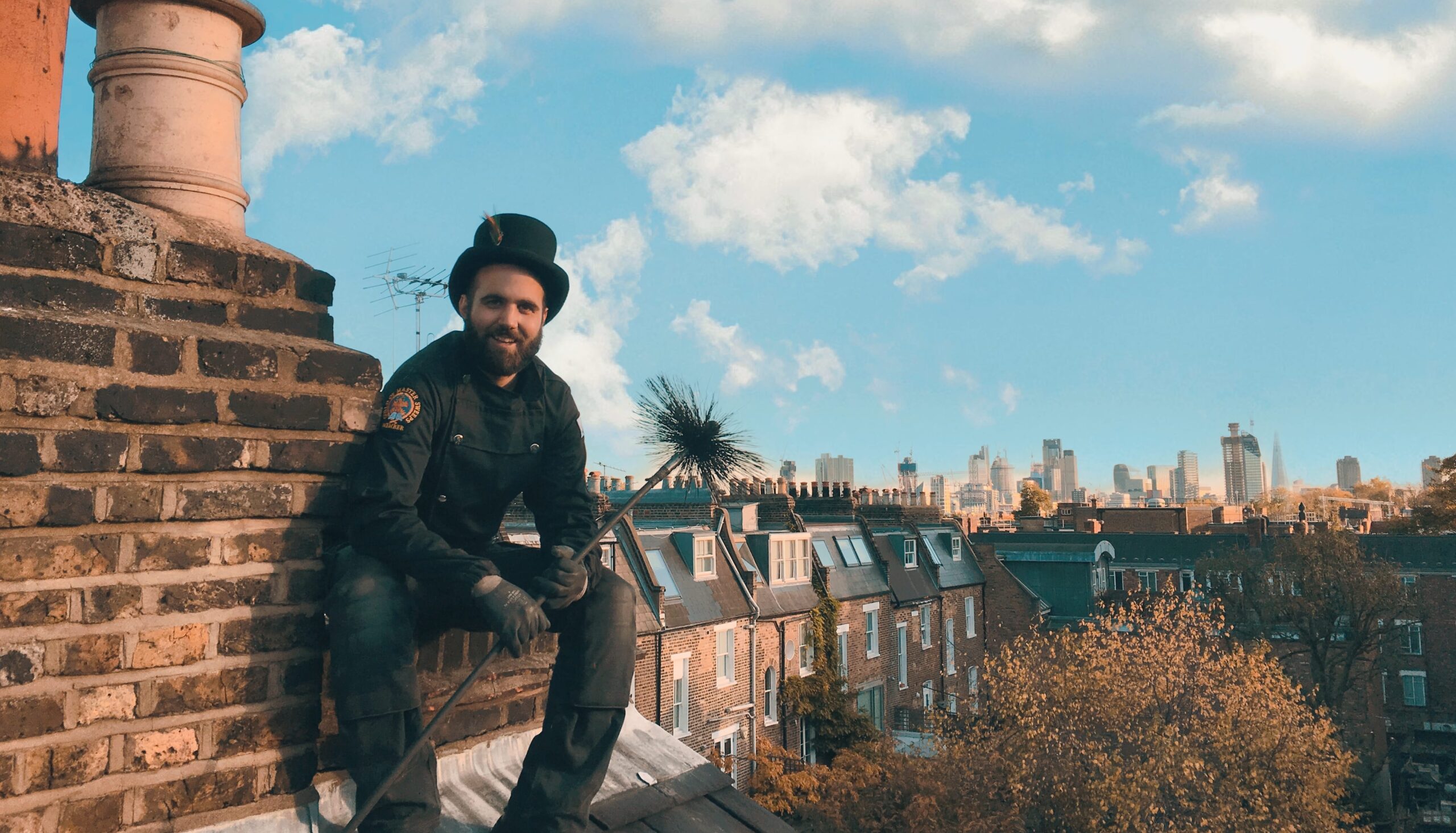Pest and Bird’s Nest Removal London, Hertfordshire and Essex
Birds find chimneys an ideal place to set up home, due to the warmth and shelter chimneys provide. However, having birds or other pests in your chimney can lead to dangerous blockages, chimney fires and infestations.
Under the Wildlife and Country Act, it is an offence to destroy or get rid of an active nest during the nesting season which usually lasts from March to August. It is necessary to wait until the end of August before checking that the nest is empty and can be removed. Overall it is fundamental that you organise a bird nest removal service.
Common signs of bird nests in your chimney
- wigs, feathers and bird droppings falling into your stove or fireplace
- Sounds of chirping or tweeting
- Bird activity around the chimney pot
Whilst it may feel somewhat inhumane to clear out nests and pests, they have the potential to cause health problems, fires, blockages and could lead to Carbon Monoxide poisoning.
Histoplasmosis is a respiratory disease that may be fatal. It results from a fungus growing in dried bird droppings.
After successfully removing the debris we carry out a CCTV inspection and a smoke draught test to confirm that the chimney is clear and that the flue is drawing correctly.
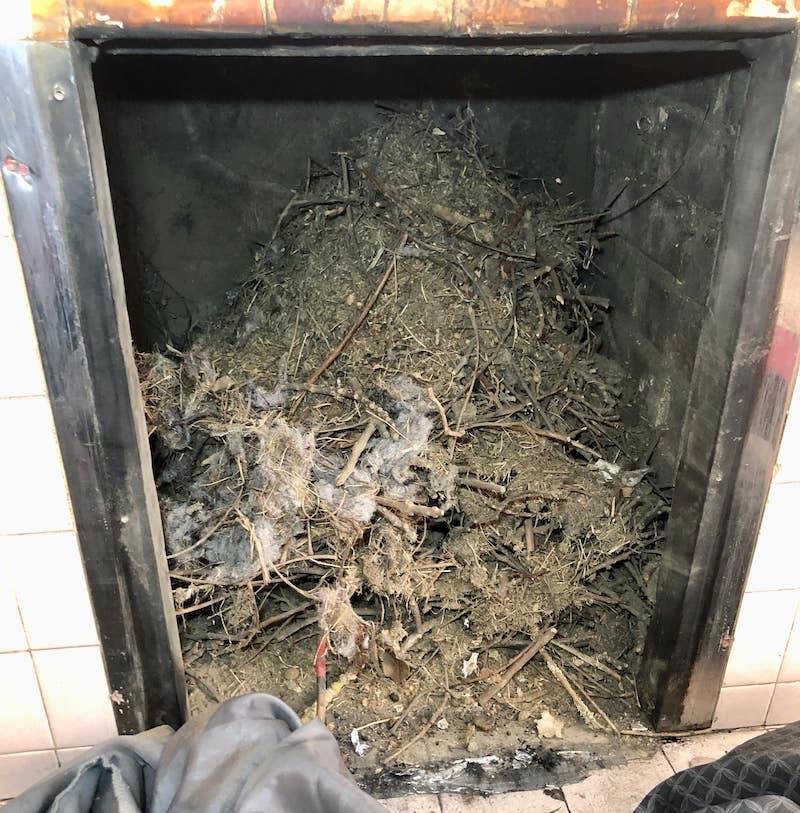
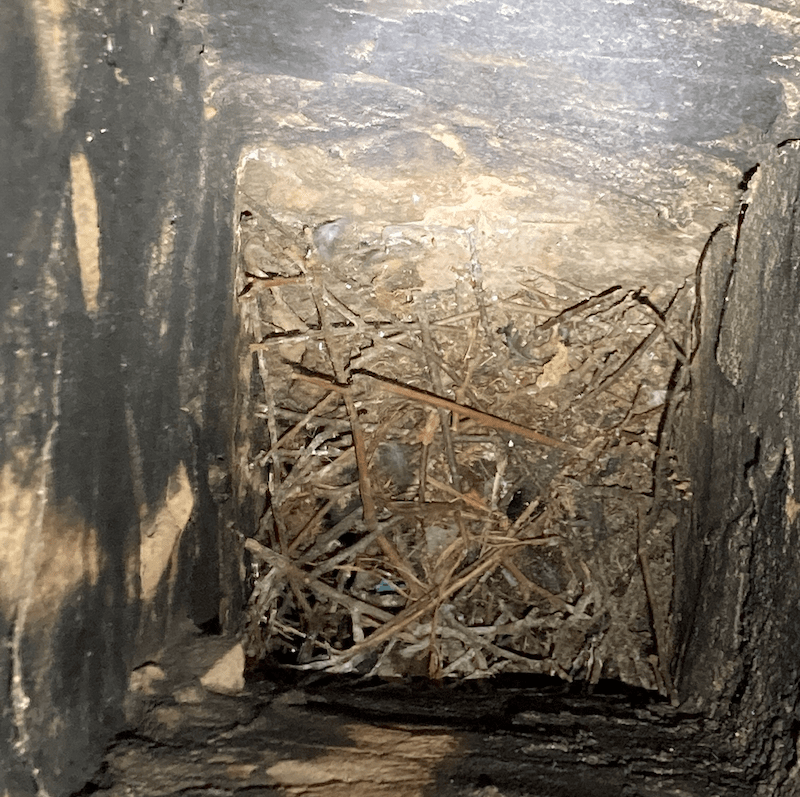
Bird Guards
Rooks, Jackdaws and Starlings, often the birds to blame for bird nests in your chimney, usually try to return year after year to the same nesting site. To deter birds from nesting in the future, it is recommended that you have a bird guard fitted.
Wasp and Bee Hives
Chimneys are also inhabited by bees and wasps on a regular basis. You may wish to contact pest control services to assist you. Once the insects have been killed off, you will need to have the hive removed from your chimney for reasons, including:
- The hive and the honey stored in it are both combustible, increasing your chances of a chimney fire.
- The scent of an empty hive will attract more insects, further adding to the blockage and causing a repeat of the problem.
- Hives have the potential to block your flue. They can also fall further through the flue, causing a chimney blockage.
- The honey stored in a hive will often melt, bleeding through the brickwork and causing permanent staining to your walls and ceilings.
Please click here to read our blog and learn more about birds’ nesting in chimneys
View our Blog
What Happens if You Don’t Sweep Your Chimney?
Ah, life gets in the way, doesn’t it? There are so many things to do around the house, but you just don’t have time to keep on top of everything. For some house-related duties - [...]
What’s the Best Fuel for a Wood Burner?
It’s that time of the year when everyone craves the natural warmth of a log burner. They’re incredibly comforting and a wonderful addition to any home. But whether you’re a current wood burner owner or [...]
What’s Involved in a Chimney Inspection in London?
You’ve probably already got a picture in your mind of a chimney inspection in action. After hours of scratching around, coughing, spluttering, and cursing, a figure emerges from the top of your chimney stack, covered [...]
We’re approved
By using us you can have the peace of mind you will receive an excellent standard of service

